In narrative essays, the conclusion serves as the final brushstroke on the canvas of your essay. It's the moment when you leave a lasting impression, prompting reflection and emotion in your readers. So, how do you write a conclusion that resonates, leaving your audience with a sense of fulfillment? Let's explore the steps and guidelines for concluding a narrative essay and remember, you can always explore options to buy narrative essays online for added inspiration and guidance.

Concluding the Narrative Essay: The Perfect Ending
In the pursuit of a flawless conclusion for your narrative essay, the paramount steps are:
-
Revisit the Essence
Wrap up your narrative essay by echoing its central theme. Take your readers back through the emotional arc of your story. Whether it’s about overcoming, loss, or finding oneself, highlight the core message again.
For example: In my journey's dimly lit moments, I uncovered not just the power to face challenges but also the enduring spirit in us all.
-
Echo Emotions
Stir emotions by revisiting your story's emotional peaks and valleys. Show, don't just tell. Paint your narrative’s emotional scenes with vivid words and imagery.
For example: The sting of defeat still clung to me, yet in the quiet ruins of lost dreams, a spark of hope kindled, rising anew like a phoenix from ashes.
-
Leave Room for Contemplation
Prompt your readers to ponder the wider meaning of your story. What insights emerge? How does it resonate with universal human experiences? Guide them to see your personal tale as a mirror to broader truths.
Take this example: In the wake of my trials, I understood that resilience is more than personal; it's a shared thread of our collective spirit, ever-present in adversity.
-
End with a Memorable Quote or Thought
End your narrative essay with a striking quote or deep statement. This leaves your readers with a powerful, lasting idea that sums up your story's core.
For instance: In life's rich tapestry, our scars are not imperfections but threads that stitch together our unique life stories.
-
Circle Back to the Beginning
Circle back to your narrative's start for a cohesive finish. By returning to the starting point, you create a sense of closure and unity within your essay. This circular structure reinforces the completeness of your storytelling.
Consider this: Standing once at uncertainty's crossroads, I never imagined how the path ahead would shape me into my true self.
-
Invoke the Senses
Draw your readers in with sensory details in your conclusion. Paint a vivid scene using sight, sound, taste, touch, and smell to immerse them in your story’s essence.
For Example: As I embarked on a new chapter, the autumn breeze whispered of fresh starts, its crispness laden with the scent of new possibilities.
-
Craft a Powerful Final Sentence
Finish your conclusion with a sentence that leaves a lasting impact. Aim for something memorable, stirring, or deeply meaningful. This final thought should echo in your readers' minds well after they've read your essay.
Here's an example: As my journey quieted down, I discovered that life's most remarkable tales are often scripted in the simplicity of everyday moments.
Also Read: How To Write A Narrative Essay?
Examples of Effective Narrative Essay Conclusion
Here are some examples of effective narrative essay conclusions:
-
1 Conclusion that summarizes the main points and reflects on the significance of the experience:
Eventually, my journey of teaching abroad was a profound learning experience. It revealed my own untapped potential and resilience. I gained insights into compassion, understanding, and the value of cultural sensitivity. This adventure, rich in lessons, will forever be a cherished part of my life. -
2 Conclusion that ends with a question to make the reader think:
As I look back on this experience, I often think about what if I hadn't dared to venture out. Such a choice would have kept me from discovering my own strengths and the vastness of the world. I'm thankful for this enlightening journey and urge everyone to embrace new experiences, stepping beyond their usual boundaries. -
3 Conclusion that uses strong language and imagery to leave a lasting impression on the reader:
The lasting memory of my students' joyous faces will always be with me. They showed me the true value of happiness, resilience, and hope. I'm thankful for the chance to have impacted their lives and am confident they will achieve remarkable things.

Ready to transform your storytelling?
Let our skilled writers perfect your narrative essays
,leaving a lasting impression on your readers
writing.
Remember, a strong conclusion ties back to your essay's theme and leaves a lasting thought for your readers.
Read More: How to Write a Narrative Essay Outline?
Tips on Writing the Conclusion of your Narrative Essay
When writing the conclusion of your narrative essay, keep in mind the following tips:
-
In wrapping up your essay, avoid just repeating the tale. The reader knows the story; focus instead on its deeper message.
-
Keep new info out of the conclusion to avoid confusion.
-
Use vivid language and imagery to leave a strong, lasting impression.
-
Your ending should tie back to the essay and provoke thought.
-
Lastly, polish your conclusion to perfection, ensuring it's error-free. Keep it brief, engaging, and thought-provoking.
Use these steps and tips from our blog to craft conclusions that resonate and make your readers think about something. Let MyPremiumEssay be your secret tool to add sparkle to your words. Here's to writing standout stories and essays. Happy writing adventures!




